Parasites are a natural components of all healthy ecosystems and all fish, including tropical Discus, can have internal and intestinal parasites. Even though these internal parasites are a natural occurrence, not a contamination, in certain conditions and circumstances, they can be problematic to fish. An intestinal parasite infection in fish is a condition in which a parasite (of any kind) infects the gastrointestinal tract of the fish. These parasites can live anywhere in the fish body, but they usually affect the intestinal tract of the fish.
Are Internal Parasites Contagious?
The life cycle of some of these intestinal parasites is as short as 2 hours. So If only one fish in the tank have internal/intestinal parasites, which is very common, you can imagine all other fish of any type in the same tank actually have that certain parasite! Under normal circumstances and in a healthy aquarium tank, intestinal parasites are present in small numbers without causing disease in fish; however, if the fish is exposed to stress, the parasite may reproduce rapidly, resulting in infestation and eventually disease. So although transmission of internal parasites from one host to another can occur easily, they are not considered as a 100% contagious disease in fish. That’s why only some fish get sick from intestinal parasites while other fish in the same tank are apparently doing well and look healthy.
Skinny discus fish with intestinal parasites
As with any other tropical aquarium fish, Discus is also susceptible to internal/intestinal parasites.
Symptoms
Internal parasites may not causes any specific clinical signs and symptoms in healthy fish; however, depending on type of the parasite, strain of the fish, water temperature, diet, and etc., fish may have symptoms like white stringy feces and loosing appetite. In very late stages of the condition, affected fish start getting thin and skinny and eventually die.
Treatment
The drug of choice for treatment depends on what parasite species your fish is infected by. Internal Parasites may cause white feces in discus fish
Internal Parasites of Fish
The two major types of internal parasites that affect both freshwater and marine tropical fish in the aquarium, including Discus, are worms and protozoa. Protozoa are microscopic, single-celled organisms that can be free-living or parasitic in the aquarium tank. Among all intestinal protozoa, Hexamita is the most notorious cause of internal parasites in tropical fish such as Discus. Spironucleus is another very common flagellated protozoa that causes changes in poop shape and color through inflammation in the small bowel of fish. The other type of parasites infecting tropical fish such as Discus is called Helminth, also known as worm parasites. Among common parasitic worms, Cestodes or tapeworms, Trematodes or flukes, and Nematodes or roundworms, are some of the most common internal worms in the aquarium tanks and breeding farms. Feeding live foods to fish, increases the risk of exposure to intestinal parasitic infections.
Diagnosis of the type of Intestinal Parasite
I wish that I knew the answer to this question! In best of my knowledge, for an aquarium hobbyist like me, there is no practical way to diagnose the type of the intestinal parasite in fish as white feces, loosing appetite, and getting skinny are common symptoms in all fish with internal parasites. According to my experience on dealing with internal parasites in discus fish, compared to other intestinal parasite species, the Hexamita is more common than other types. That is why the first thing comes to mind for treating internal parasites in fish, is Metronidazole!
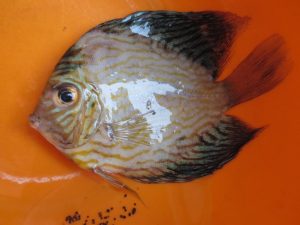
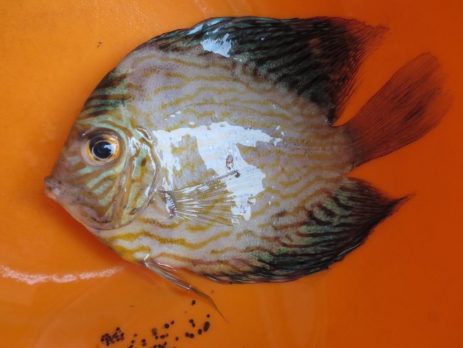

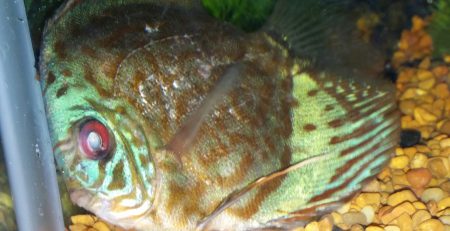
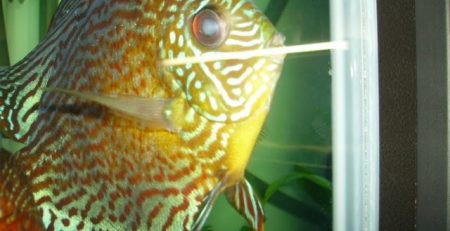
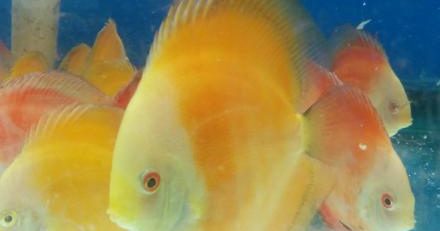
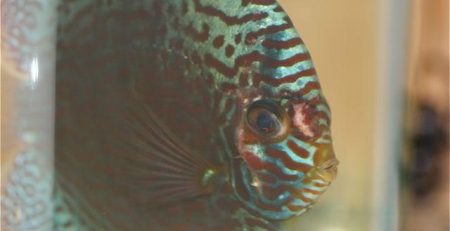
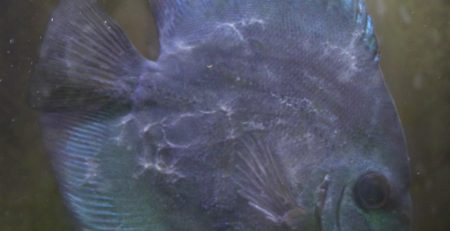
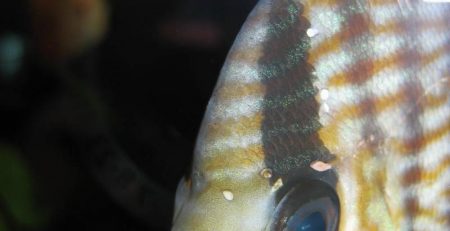
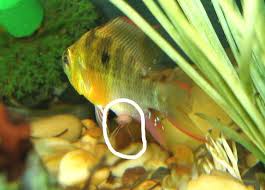
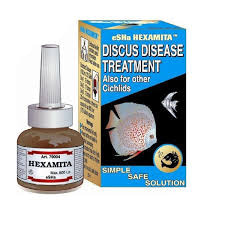
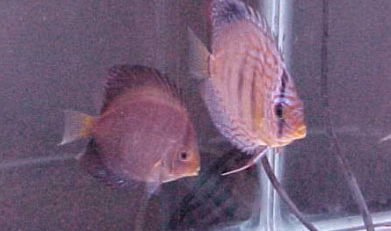
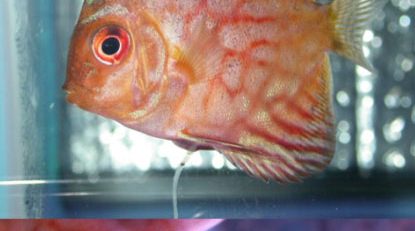
Leave a Reply
You must be logged in to post a comment.